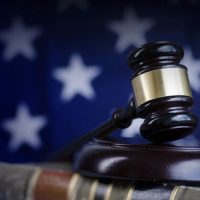Scopolamine, the Scariest Drug Not to Be Categorized as a Controlled Substance

Schedule I controlled substances are the most illegal drugs in the United States, but the categorization of drugs into the five schedules of controlled substances is not directly related to the risk of death from overdose or adverse effects from the drug. For example, heroin and MDMA are Schedule I controlled substances, and both have been linked to numerous deaths. Meanwhile, cocaine and fentanyl are Schedule II controlled substances; they have caused plenty of fatal overdoses, but the difference is that they have at least one legally approved medical application, in addition to being popular street drugs. Furthermore, cannabis is still a Schedule I controlled substance at the federal level, despite that no one has ever died from an overdose of cannabis. Overdose risk is only one of the ways that drugs can be dangerous, though. Sometimes drugs are dangerous because of other events associated with their use. For example, alcohol contributes to many injuries and deaths by way of car accidents, assaults, drownings, and falling asleep outdoors in the cold, although the last scenario is uncommon in Florida; despite this, it is legal for anyone above the age of 21 to buy alcoholic beverages. Another drug available by prescription only but not on the list of controlled substances is also associated with dangerous situations. Here, our Miami drug crimes defense lawyer explains how you might not get drug charges for possession of scopolamine, but its presence among your personal property may lead police to investigate you for other crimes.
The Origins of Scopolamine
Scopolamine occurs naturally in plants of the genus Scopolia, which includes the deadly nightshade; this genus gives the drug its name. It is also called hyoscine, after the genus of plants that includes the black henbane, in which the drug also occurs. Plants that produce scopolamine grow in the wild in Europe, Asia, the Americas, and Australia. Other names for scopolamine include Devil’s Breath and burundanga.
Medical Uses of Scopolamine, Past and Present
Scopolamine has been used medicinally since at least as early as the 19th century. Its earliest use in modern medicine was to induce a state of moderate sedation known as “twilight sleep” for minor surgeries or childbirth; doctors were able to achieve the desired effects by combining scopolamine with a low dose of morphine. Today, it is sometimes given before surgery to decrease the production of saliva and respiratory secretions and to reduce postoperative nausea. Because of its anti-nausea properties, it is also indicated as a treatment for motion sickness. It is available by prescription only, but it is not on the list of controlled substances. In other words, its legal status is similar to other medically useful but recreationally uninteresting drugs like synthetic thyroid hormone or the diabetes drug Metformin.
The Role of Scopolamine in Crimes and Acts That Should Be Illegal
Like other drugs that are effective against motion sickness, scopolamine causes drowsiness. Unlike over-the-counter Dramamine, though, scopolamine also has dissociative properties, causing patients to feel disoriented and to be suggestible; it has this in common with ketamine, a drug commonly used today to cause moderate sedation for minor surgeries. As a result, a common illegal use of scopolamine is to add scopolamine powder to people’s drinks without their knowledge in preparation to commit a crime. Like Rohypnol, scopolamine does not change the appearance or taste of a beverage when added to it. The body also metabolizes it quickly, so by the time that people regain awareness and realize that they have been drugged, their blood and urine samples no longer test positive for scopolamine. Scopolamine has been used to facilitate kidnappings, robberies, and sexual assaults. Some people under the influence of scopolamine have handed over their debit cards and told their PIN numbers to the robbers, only to wake up the next morning with empty bank accounts and no memories of the previous night’s events.
Therefore, if you have a pocket full of scopolamine when the police pull you over, but you do not have a prescription for it, they are likely to suspect you of a crime. You might not get the same charges you would get if the baggie contained cocaine or fentanyl, but you could find yourself facing charges for conspiracy to commit robbery. The police might use the scopolamine as evidence to obtain a warrant to search your property for additional evidence of a crime.
Contact Our Criminal Defense Attorneys
A South Florida criminal defense lawyer can help you if you are in legal trouble despite only possessing legal drugs. Contact Ratzan & Faccidomo in Miami, Florida for a confidential consultation about your case.
